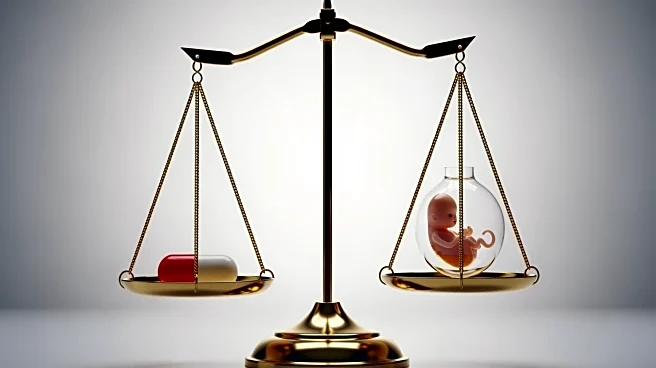What's Happening?
President Donald Trump has announced a deal with drug manufacturer EMD Serono to reduce the cost of a common fertility medication used in in vitro fertilization (IVF) treatments. The agreement aims to make
the drug Gonal-f more affordable for patients undergoing IVF, which often involves expensive hormone treatments to stimulate ovulation. The Trump administration has also introduced new federal guidance to encourage employers to offer fertility coverage as a separate benefit, similar to dental and vision plans. This initiative is part of Trump's broader effort to reduce the cost of IVF and make it more accessible to couples facing infertility.
Why It's Important?
The reduction in IVF drug costs is significant for many families struggling with infertility, as the expenses associated with IVF can be prohibitive. By making fertility drugs more affordable, the Trump administration is addressing a critical barrier to family formation. This move could lead to increased access to IVF treatments, potentially resulting in more successful pregnancies and births. The initiative also reflects a broader trend of expanding healthcare benefits to include fertility services, which could influence employer health plans and benefit offerings.
What's Next?
The Trump administration plans to launch TrumpRx, a government website where patients can purchase fertility drugs directly from manufacturers at discounted prices. The site is expected to be operational in 2026. Additionally, the Food and Drug Administration will expedite the approval of another fertility drug from EMD Serono, potentially increasing competition and further reducing costs. Employers may begin to offer standalone fertility benefits, expanding access to IVF coverage for more employees.
Beyond the Headlines
The initiative to lower IVF drug costs comes amid political debates over reproductive rights and healthcare access. Trump's support for IVF aligns with his pro-life stance, as he views the initiative as promoting family growth. However, the plan does not mandate universal free IVF coverage, falling short of Trump's campaign promise. The move may also face criticism from conservative groups with religious objections to IVF.










